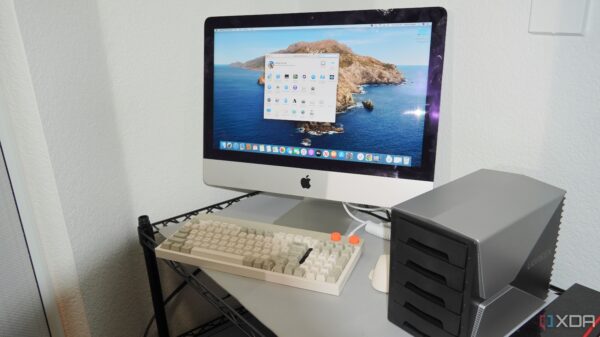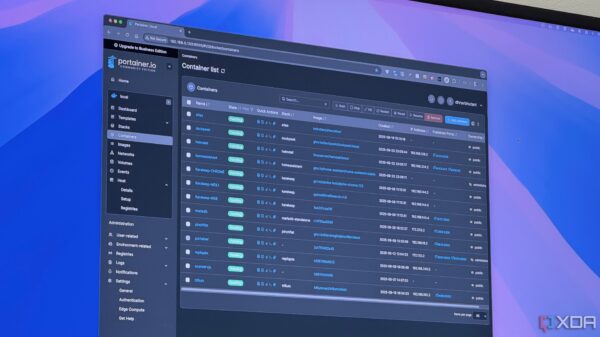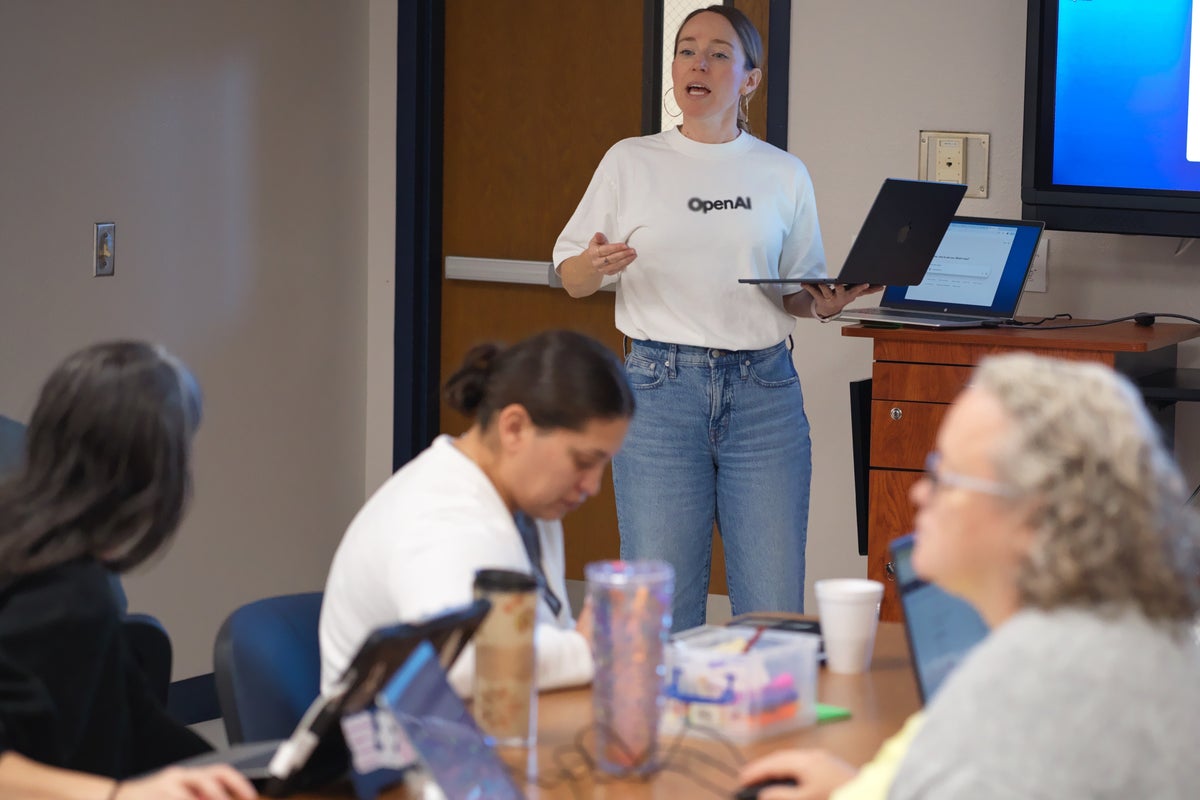UPDATE: Dozens of educators in San Antonio are diving into the future of teaching as major tech firms ramp up efforts to prepare schools for the AI revolution. On a scorching Saturday, teachers explored groundbreaking AI tools that promise to transform lesson delivery, sparking urgent discussions about the potential impact on their careers.
The pivotal partnership between educators and tech giants like Microsoft, OpenAI, and Anthropic aims to equip America’s four million teachers with essential AI skills while preparing students for a tech-driven workforce. A teacher’s anxious question echoed throughout the training: “Are we going to be replaced with AI?”
The American Federation of Teachers (AFT), the nation’s second-largest union, has secured significant funding to support this initiative. Under a July agreement, Microsoft will contribute $12.5 million over five years, while OpenAI pledges $8 million and Anthropic offers $500,000. This funding will establish an AI training hub in New York City, with plans to open two additional hubs and train 400,000 teachers within five years.
AFT President Randi Weingarten emphasized the necessity of this collaboration, stating, “There is no one else who is helping us with this. That’s why we felt we needed to work with the largest corporations in the world.” She acknowledged skepticism but highlighted the urgency of integrating AI in classrooms to remain relevant in education.
Furthering this trend, the National Education Association (NEA), the largest teachers union in the U.S., has also partnered with Microsoft, receiving a $325,000 grant to develop AI training programs aimed at 10,000 teachers this school year.
While the tech industry sees a lucrative opportunity in education, educators stress the need for caution. Robin Lake, director of the Center on Reinventing Public Education, warns, “These are private initiatives, and they are run by companies that have a stake.”
At the San Antonio workshop, 50 educators participated in a three-hour training session, learning to create engaging lesson plans using AI tools like ChatGPT and Microsoft CoPilot. “We are preparing kids for the future. That is our primary job,” trainer Kathleen Torregrossa told attendees, urging them to embrace the shift.
Teachers like Gabriela Aguirre, a 1st-grade dual language teacher, expressed excitement over AI’s potential. “It can save you so much time,” she said, envisioning illustrated flashcards created through AI to aid vocabulary teaching.
Another educator, Celeste Simone, highlighted AI’s transformative power for her English language learners, stating, “I can give my students access to things that never existed before.” With AI, Simone can generate personalized learning materials in seconds, a game-changer for her teaching approach.
The urgency of these developments is underscored by the increasing recognition that AI literacy in schools is lagging. Studies highlight that while AI use is surging, proper training and guidance for educators are not keeping pace. Microsoft has launched a $4 billion initiative focused on AI training and access to its tools, further solidifying this tech push in education.
As the federal government encourages private investment in AI education through initiatives like the AI Education Task Force, tech companies are stepping up. Over 100 companies have already committed to funding educational AI resources, indicating a growing trend towards integrating technology in classrooms.
The San Antonio training marks a significant step forward, as educators confront the challenges and opportunities of AI. With technology rapidly evolving, the collaboration between teachers and tech giants could redefine the future of education, making it crucial for educators to adapt and thrive in an increasingly digital landscape.
As this urgent initiative unfolds, educators and students alike are poised to benefit from a more engaging, tech-savvy educational experience.







































































